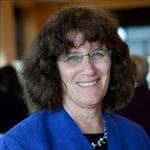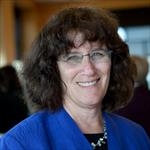

The Institute for Health & Aging (IHA) is an organized research unit – a UC Regents-approved designation indicating a group of people who come together to do research on a specific topic. Established in 1985, IHA researchers look broadly at policies that affect aging, with aging defined as occurring across the life course. We are housed in the School of Nursing, but we are a campus-wide resource and, today, our main areas of interest are aging and chronic illness, tobacco, bioethics and women's health. In addition to research, our faculty are engaged in teaching and public service on the campus and in the greater community.
Our biggest challenge is coming up with a sustainable financial model that allows us to support our faculty and build new programs and centers. Most of our faculty members have to survive on soft money from research grants. That can be particularly challenging for promising junior faculty who are trying to build their careers. We invest considerable time in helping our junior faculty write successful proposals, pursue K awards and develop fruitful collaborations. We also write students and post-docs into our grants, so they can participate in our research projects and have an incentive to stay with us.
We welcome faculty from other departments and schools who are interested in conducting research with IHA. We have developed a collaborative and rich research-mentoring environment, which is essential for people working towards becoming independent researchers. We are always looking for networking opportunities and ways to increase our visibility.
For example, in the summer of 2017, we organized a half-day symposium at the 2017 International Association of Gerontology and Geriatrics conference with colleagues throughout UCSF doing work on aging; we're the social science and policy end, but there are many clinical and basic science programs working in aging, and there is a lot we can do to advance and enhance each other’s work. The symposium included four different panels where we deliberately mixed disciplines, so every topic covered the whole spectrum of research. We made some important, and I believe, lasting connections and hope to keep the momentum going to help facilitate future collaborations in aging work on the campus.
As director of the IHA, my goal is to expand our role as a nexus for aging and aging policy work on campus, nationally and internationally. I love the multidisciplinary nature of the work we do at UCSF and look forward to greater opportunities to impact the future of health and aging moving forward.
Wendy Max, PhD, is professor of Health Economics and director of the Institute for Health & Aging at the School. Her recent research has focused on modeling the economic impact of tobacco on health care expenditures. She has estimated national costs of smoking; costs to Medicare, Medicaid and private payers; costs in California; and the impact on communities of color and other vulnerable groups. She and her team are currently developing models of the impact of secondhand exposure and the use of non-cigarette tobacco products on health care expenditures in the U.S. They are also evaluating the economic impact of several tobacco control policies in California.
